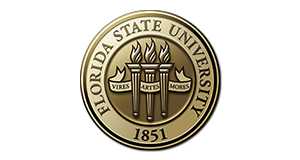Florida State University Search
Biological Safety - Training
Biomedical Waste Training
Check the Training Calendar/Register
The Florida Department of Health, F.A.C. 64E-16, requires any personnel who works in a Biological Safety Level 2 laboratory or in a laboratory which generates any solid or liquid waste presenting a threat of infection to humans to have Biomedical Waste Training.
This training is given along with the Bloodborne Pathogen Training.
Topics covered include:
- Definitions of Biomedical Waste/Regulated Waste
- Facility policies and procedures of mixed waste
- Labeling, storage and containment of regulated waste
- Enforcement and penalties involved in the regulation
Bloodborne Pathogen Training
Check the Training Calendar/Register
For more information, click here.
Anyone who may have an occupational exposure to human blood, body fluid, tissues or human cell lines must receive this training, as required by the OSHA Bloodborne Pathogen Standard.
This training is given along with the Biomedical Waste training.
Topics covered include:
- Epidemiology, symptoms and the modes of transmission of bloodborne pathogens
- FSU's exposure control plan
- Hepatitis B vaccine, its efficacy, safety and method of administration
- Methods to prevent or minimize occupational exposure
- Post-exposure procedures and medical evaluations
Biosafety Level 2 and Above Laboratory Training
Check the Training Calendar/Register
For more information, click here.
This training is available online
All laboratory personnel who will be working in or who will have access to a Biological Safety Level 2 (BSL-2), Biological Safety Level 3 (BSL-3), or an Animal Biological Safety Level 2 (ABSL-2) laboratory must receive general training for working in these biosafety level laboratory facilities. This training is based on the Center for Disease Control and Prevention (CDC) and the National Institutes of Health (NIH), Guidelines for Biosafety in Microbiological and Biomedical Laboratories (BMBL).
Topics covered include:
- Bloodborne Pathogens
- Biomedical Waste
- General biological safety issues associated with these biosafety level laboratory facilities
- Different general practices and procedures necessary to prevent a potential exposure to the infectious agents being used in these biosafety level laboratories
- Information regarding the appropriate disposal of biohazardous waste generated in these biosafety level laboratories




